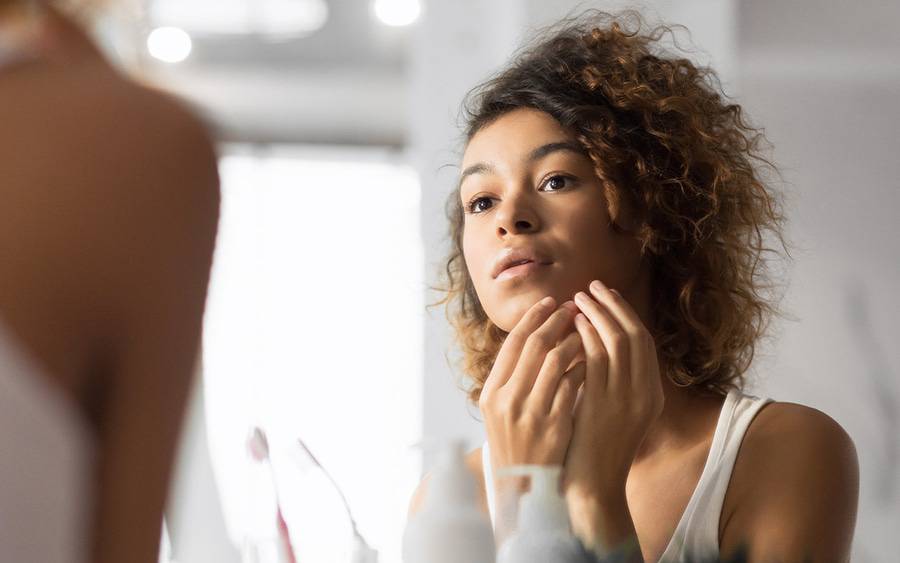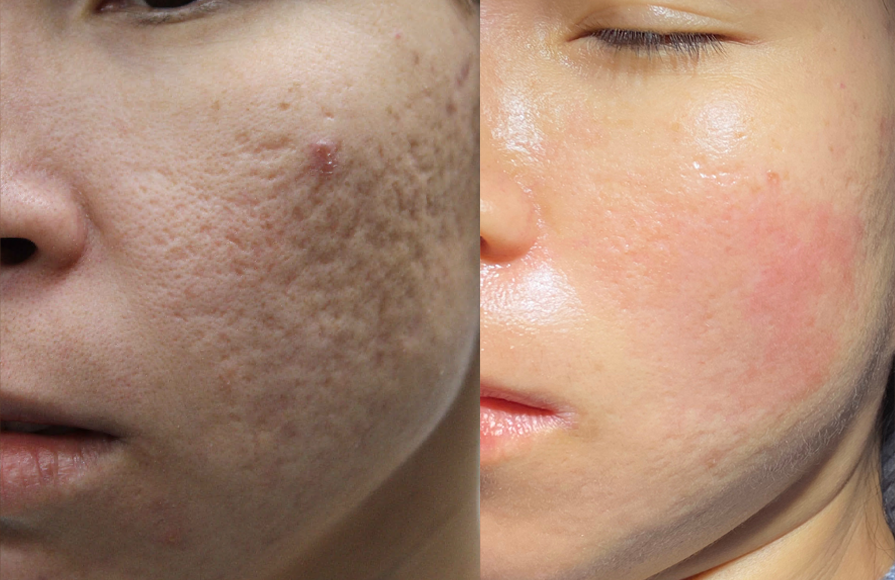The Effect of Skin Problems on Confidence: Effective Strategies for Dealing With Acne Scars
Skin problems, particularly acne, can exceptionally affect a person's self-esteem, usually producing obstacles to social interactions and individual expression. Recognizing exactly how these strategies can foster self-confidence might expose necessary understandings into holistic treatment approaches that empower people to welcome their skin and enhance their general top quality of life.
Psychological Results of Acne
Acne, a widespread skin problem affecting millions worldwide, can have extensive psychological results on people. The visible nature of acne often brings about considerable psychological distress, consisting of feelings of embarrassment, reduced self-esteem, and social withdrawal. Several individuals with acne might experience stress and anxiety, particularly in social scenarios, where they are afraid judgment or unfavorable assumptions based on their skin condition.
Study indicates that the mental impact of acne can be as incapacitating as the physical symptoms, adding to depression and body dysmorphic problems sometimes. Teens, who are frequently a lot more sensitive to peer viewpoints, might be especially prone, leading to damaging effects on their social communications and academic performance.
In addition, the stigma connected with acne can aggravate feelings of isolation, as people might perceive themselves as less eye-catching or socially acceptable. This psychological problem can impede personal relationships and general lifestyle. Hence, it is crucial for medical care suppliers to attend to both the emotional and physical elements of acne, providing extensive assistance that includes counseling and educational sources to aid people handle their condition successfully.
Comprehending Acne Scars
Acne scars can manifest in various kinds, largely classified into atrophic, hypertrophic, and keloid scars. Atrophic marks are defined by a loss of tissue, resulting in depressions in the skin, while hypertrophic marks involve elevated cells that develops in response to swelling.
The formation of acne scars is affected by elements such as the severity of acne, the period of inflammation, and specific recovery reactions. Skin kind and genes likewise play vital functions in mark advancement. Comprehending the organic systems behind mark development helps in resolving the psychological repercussions, as people may regard their scars as permanent pens of a past battle. This knowledge functions as the foundation for discovering efficient treatment techniques, encouraging people to take control of their skin concerns and their self-worth. Acknowledging the types and sources of acne scars is crucial in browsing the path towards effective options.
Topical Therapy Options
While different therapy approaches exist for dealing with acne marks, topical alternatives are often the first line of protection for people seeking to boost their skin's look - skin rejuvenation treatments. These treatments can be efficient in reducing the exposure of scars and promoting total skin health and wellness
Usual topical agents include retinoids, which improve cell turnover and motivate the regrowth of skin cells, therefore boosting texture and tone. Additionally, alpha hydroxy acids (AHAs) and beta hydroxy acids (BHAs) exfoliate the skin, removing dead skin cells and promoting a smoother surface.

Over the counter items having components like niacinamide and licorice essence might likewise aid in reducing swelling and discoloration (acne and acne scars treatment). It is essential for people to seek advice from a dermatologist to determine one of the most ideal topical treatments tailored to their special skin type and mark attributes, taking full advantage of the potential for effective results
Advanced Dermatological Treatments
For individuals looking for much more prompt and considerable renovation in the appearance of acne marks, advanced dermatological treatments provide an array of effective choices. These procedures are made to target deeper skin layers, cultivating significant skin regeneration and makeover.
One popular method is laser treatment, which uses concentrated light to resurface the skin and lower the appearance of scars. Fractional laser treatments, particularly, are effective as look at this website they promote recovery while targeting details areas, lessening downtime. Chemical peels off, which involve the application of acidic services, can additionally be useful by scrubing the skin and advertising new cell growth.
Microneedling is an additional innovative choice, including using great needles to create micro-injuries that stimulate collagen manufacturing. This treatment boosts skin appearance and reduces the visibility of scars gradually. In addition, dermal fillers may be used to raise depressed scars, supplying prompt quantity and use this link smoothing the skin's surface area.

Building Confidence Through Care
Confidence frequently thrives when people prioritize self-care and embrace efficient therapies for acne scars. The journey towards enhanced skin is not only regarding aesthetic results; it also significantly affects emotional wellness (skin rejuvenation treatments). Individuals that actively participate in their skincare programs frequently experience an increase in self-esteem, as they see concrete improvements in their skin's look
Creating an individualized skincare routine that includes both topical therapies and expert treatments is important. Routine cleaning, exfoliation, and moisturization can assist keep healthy skin, while procedures such as chemical peels or laser treatment might provide extra dramatic results. Past physical therapies, adopting a holistic technique that includes healthy way of life options-- such as well balanced nourishment, hydration, and tension administration-- can better improve skin wellness and self-confidence.
Furthermore, support from dermatological experts can encourage people to browse their therapy options efficiently. Sharing experiences with others dealing with comparable obstacles can cultivate a feeling of community and durability. Eventually, developing confidence with treatment entails a complex strategy that prioritizes both skin health and emotional support, resulting in a renewed sense of self-worth and individual satisfaction.
Conclusion
Acne and its resultant marks can greatly influence an individual's self-worth and social interactions. Inevitably, attending to both the physical and mental facets of acne scars is vital for promoting self-esteem and health.
Skin problems, specifically acne, can greatly influence a person's self-worth, usually developing obstacles to social interactions and personal expression. Atrophic scars are defined by a loss of tissue, resulting in depressions in the skin, while hypertrophic scars involve elevated cells that develops look at here in reaction to swelling. Skin kind and genetics likewise play critical duties in mark development.One prominent technique is laser therapy, which makes use of concentrated light to resurface the skin and decrease the look of marks. In addition, dermal fillers may be utilized to boost clinically depressed scars, offering prompt quantity and smoothing the skin's surface area.